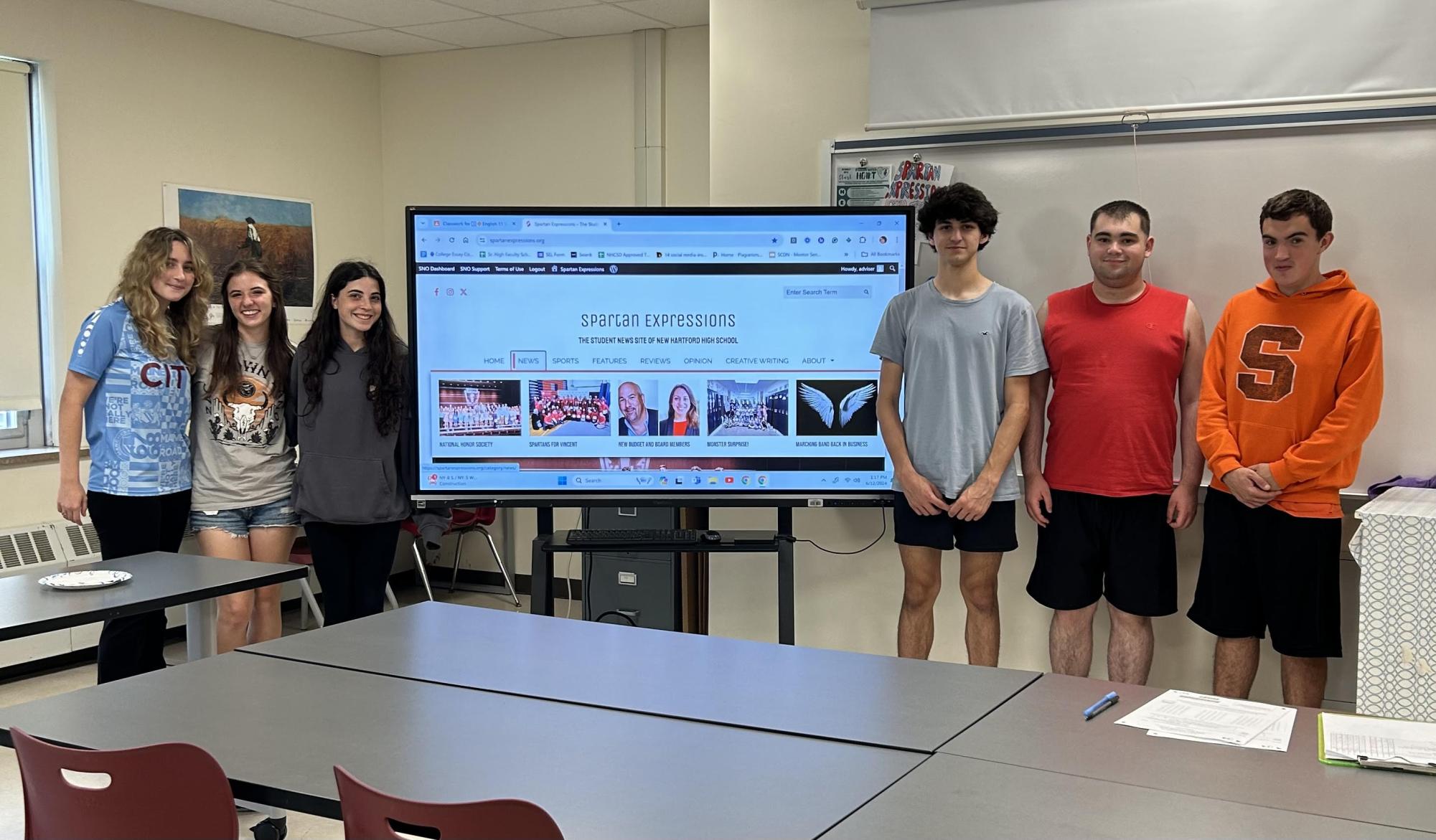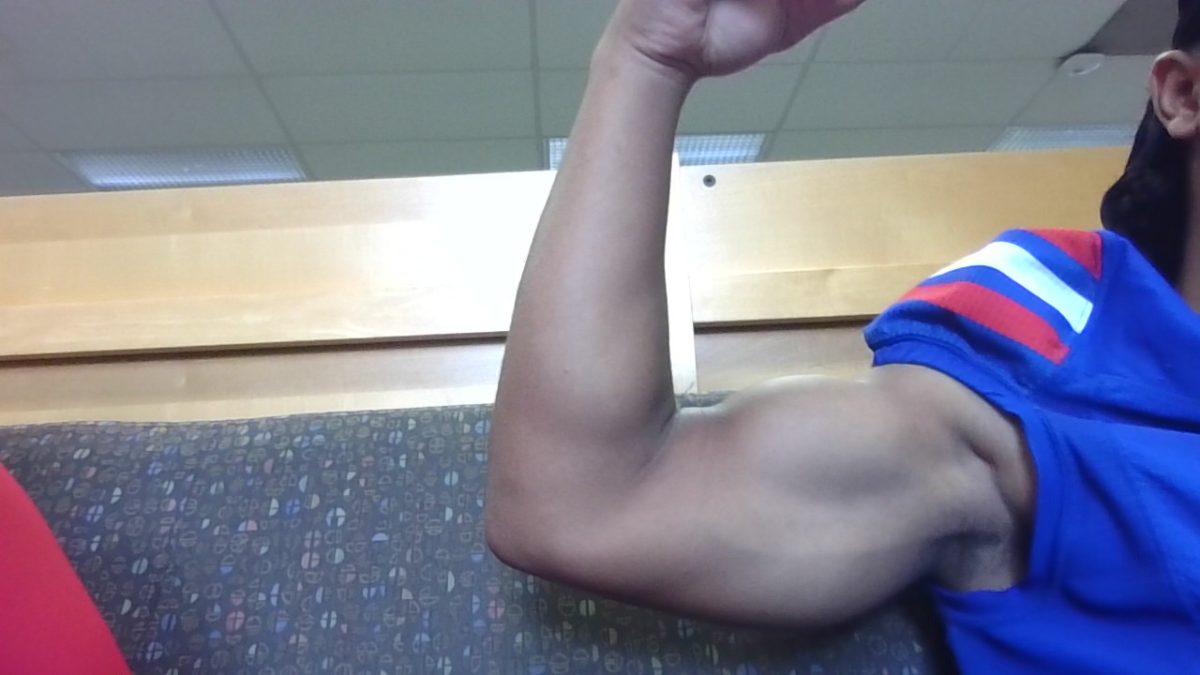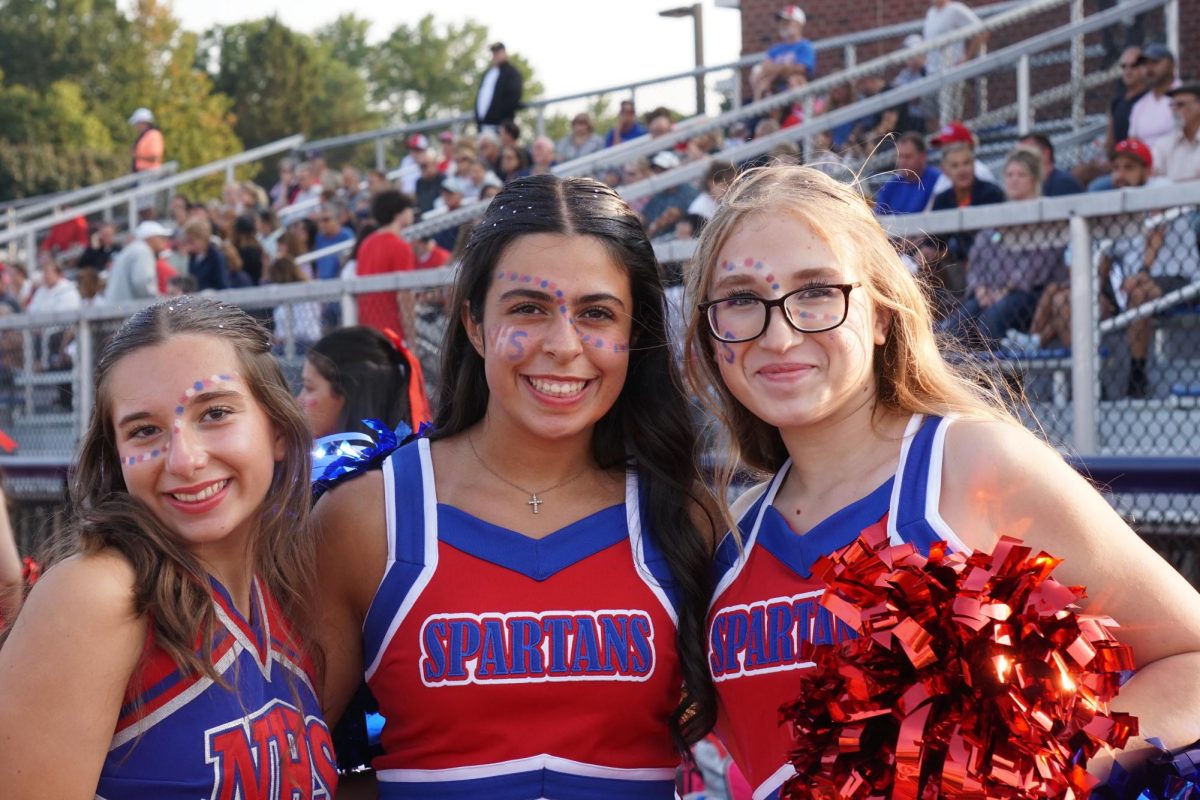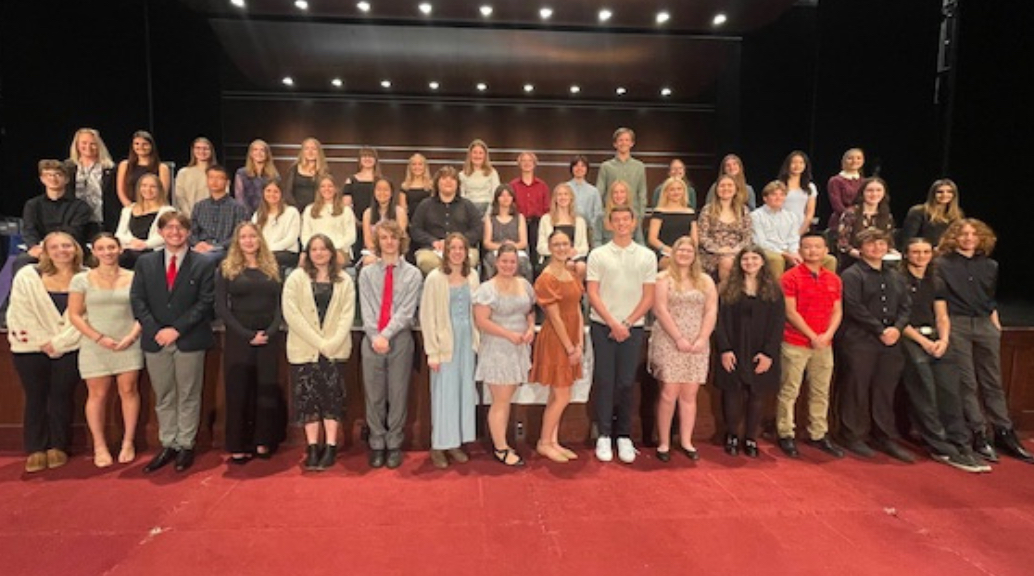At the start of the second semester, the writers for Spartan Expressions were left without a place to publish their work.
As a class, the students were able to collaborate in establishing the new website that publishes student journalism. They chose the format, colors, text fonts, and organized the site.
With the help of Mrs. Clive, who advises the paper and teaches the course, our school officially has a permanent home for its work: spartanexpressions.org.
This will serve as the base for the website that future classes will use.
The journalism curriculum is much lighter than most other English classes due to it being an elective.
Students will learn how to write their articles and what they should include within them.
They will also learn what news values are, and how they impact their writings, along with the legal situation regarding freedom of speech and press.
Journalism is semestered and classes meet every other day, allowing students time to interview other students and people, in order to put together their articles.
Spartan Expressions post four issues per semester, and journalism students contribute to all of them.
Throughout the semester students will write a mandatory eight articles. Extra credit will be given for any others that students write.
Classes begin with a question of the day that is always related to an aspect of the course, whether it is about students’ articles, electives, or curriculum-based questions.
Of the eight mandatory articles, four are individual articles, and the others are columns. Articles are organized by topic including: feature, sports, news, and opinion.For each issue that is published, students will be tasked with one of these topics, and they must write their article within its constraints. For each issue, they are assigned a different topic.
Columns work differently in that they contain a topic that is written about in four different articles.The student will choose a topic and divide it into four parts, each addressing something new that will tie into the theme.
As mentioned before, journalism does not require students to memorize information. Instead the class is structured as a writing workshop with opportunities for students to engage in the writing process to improve their skills.
But the class still provides a final exam to wrap up the course.Throughout the semester, students will have learned how to write their best pieces, and so for the final exam, students will be given two class blocks to type a final article. They are provided with the topic, pre-written interviews, and other websites that students can use to incorporate evidence into their writings. This year’s final exam was a feature weighing the pros and cons of free school lunch.
Overall, journalism is a fantastic class for those who enjoy writing or for students who just want to learn something new. So go take it!







